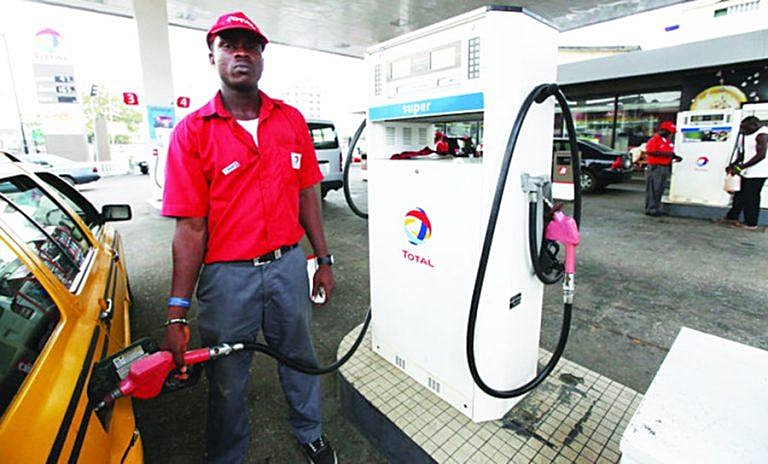Nigeria is experiencing the negative effects of the recent increase in the pump price of petrol, causing concerns among economic analysts and members of the organised private sector.
Public outcry has intensified since the Nigerian National Petroleum Company Limited (NNPCL) announced the hike in the price of premium motor spirit (petrol) two weeks ago. The pump price of petrol has risen to over N855 per litre at NNPCL retail outlets, but it is being sold above N1,000 per litre at other stations. The Minister of State (Oil) Petroleum Resources, Heineken Lokpobiri, claims that the federal government is not responsible for the price increase.
Nigerians woke up on Tuesday to find pump prices ranging from N600 to N918 per litre, depending on the location of the purchase at NNPC stations nationwide. The consequences of this increase are already being felt in terms of higher prices of goods and services, further exacerbating the state of poverty in the country. The rise in prices has particularly impacted the transport sector and increased costs for goods and services.
While Lokpobiri and the NNPCL insist that the petrol price hike is driven by market forces, President Bola Tinubu commented that the increase was necessary to facilitate Nigeria’s development. The Nigeria Labour Congress (NLC) has accused the federal government of violating an agreement not to increase fuel prices, dubbing the hike a betrayal.
Concerns have been raised that the latest increase in petrol prices could ignite social unrest, as income disparities in the country continue to widen. Bismarck Rewane, CEO of Financial Derivatives Company Limited, projects that the 50.1% increase in the petrol price will result in Nigerian consumers contributing N5 trillion to the government, exacerbating energy poverty. He warns that citizens may react in frustration, potentially leading to social unrest.
Rewane predicts that the new petrol price will increase the number of Nigerians trapped in energy poverty to 168 million by 2025, up from 161 million in 2023. The increased petrol price means that N5 trillion will be diverted from consumers to the government, which may result in inflation as logistics costs rise and consumer demand declines due to income squeeze.
The completion of the Dangote Refinery is expected to improve the supply of petrol, but it may not reduce the price significantly as producers will not sell below their production cost. Additionally, the federal government has yet to finalize plans with the Dangote Refinery, leaving Nigerians uncertain about the anticipated sale of Dangote oil in the country.
Rewane warns that the petrol price hike could worsen inflation in the country, potentially preventing the Central Bank of Nigeria (CBN) from reducing interest rates despite the expectation of an end to monetary tightening. Despite crackdowns on labor and civil societies, the opposition to the petrol price hike suggests that more protests are likely to occur.
The Trade Union Congress (TUC) and ActionAid Nigeria have both condemned the petrol price hike. The TUC demands that the federal government reverse the decision and restore confidence among citizens. ActionAid Nigeria advocates for broader economic reforms rather than just increasing the minimum wage, emphasizing that the removal of fuel subsidies has had a negative impact on Nigerians since President Bola Ahmed Tinubu took office in May 2023.
The Lagos Chamber of Commerce and Industry (LCCI) warns that the petrol price hike will have severe consequences for businesses, affecting supply chains, power generation, transportation, and factory operations. The potential increase in the cost of doing business, coupled with the weakening consumer purchasing power, may lead to price rises, business closures, and job losses. The National Association of Chambers of Commerce, Industry, Mines and Agriculture (NACCIMA) calls on the government to engage in constructive dialogue with relevant stakeholders to address concerns raised about the price increase and its impact on the economy.
If the current administration does not take decisive action to mitigate the effects of the petrol price hike, it could lead to widespread price increases, potentially reversing the recent decline in inflation rates and further impacting the Nigerian economy.
Discover more from Tension News
Subscribe to get the latest posts sent to your email.

